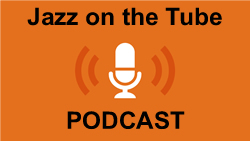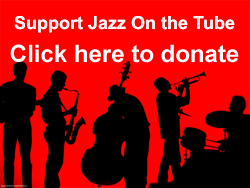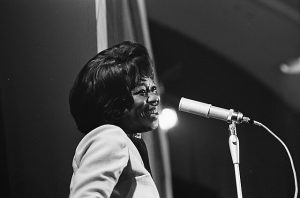Joe Pass
Jazz On The Tube Radio
Tribute
Joe Pass
Joseph Anthony Passalaqua was born January 13, 1929 in New Brunswick, New Jersey and raised in Johnstown, Pennsylvania. Though not from a musical family, Pass was inspired to play the guitar after seeing Gene Autry perform the role a guitar playing cowboy and so his parents bought him his first guitar on his ninth birthday. By the time Joe was fourteen he was performing with local bands in the area and got his first major gig with the Tony Pastor band in 1947 when he was eighteen. Pass went on the road with Pastor’s band and you’ll find him as the rhythm guitarist on the recordings from that time period. Pass moved to New York City next and began playing around the city and fell prey to a drug abuse problem in the 1950s. But this turned out to be a blessing in disguise as Pass spent several years in the Synanon Center in California and during that time practiced non stop. Joe emerged a new man and recorded the album ‘Sounds of Synanon’ in 1961.
Joe recorded many more albums in the 1960s for the Pacific Jazz label including ‘Catch Me’, ’12-String Guitar’, and ‘For Django’. In 1963 Pass won Downbeat magazine’s “New Star Award” and did a lot of studio and television work in the Los Angeles area. During this time Pass worked on The Tonight Show, The Merv Griffin Show and The Steve Allen Show as well as played with Louis Bellson, Frank Sinatra, Ella Fitzgerald, Sarah Vaughan, Joe Williams, Johnny Mathis, Les McCann, Bud Shank and George Shearing among others. In the early 1970s Joe worked with Herb Ellis at Donte’s jazz club in Los Angeles and this led to the first ever record made by the Concord Jazz label called ‘Jazz/Concord’ with Ellis, Ray brown and Jake Hanna. Pass also helped create a series of jazz education books including Joe Pass Guitar Style which is still used by students today to learn improvisation. In 1974 Joe released his famous album called ‘Virtuoso’ on Pablo Records in addition to the record ‘The Trio’ with Oscar Pederson and NHOP which won a Grammy in 1975 for Best Jazz Performance by a Group. Pass also recorded with such artists as Benny Carter, Zoot Sims, Milt Jackson, Duke Ellington, Count Basie, Ella Fitzgerald and Dizzy Gillespie on the Pablo Records.
Joe Pass continued performing making records with Chet Baker, J.J. Johnson and a few recordings with good friend John Pisano. Joe passed away in 1994 leaving a legacy as one of the greatest guitar players of the 20th century. He opened up new possibilities for solo jazz guitar with his walking bass lines, melodic counterpoint, impeccable technique and a virtuoso knowledge of chord progressions.
“If you hit a wrong note, then make it right by what you play afterwards.”
“Guitarists should be able to pick up the guitar and play music on it for an hour, without a rhythm section or anything.” – Joe Pass
[tell-a-friend id=”1″ title=”Tell a friend”]





